Movie Review: Festival
by refresh_daemon
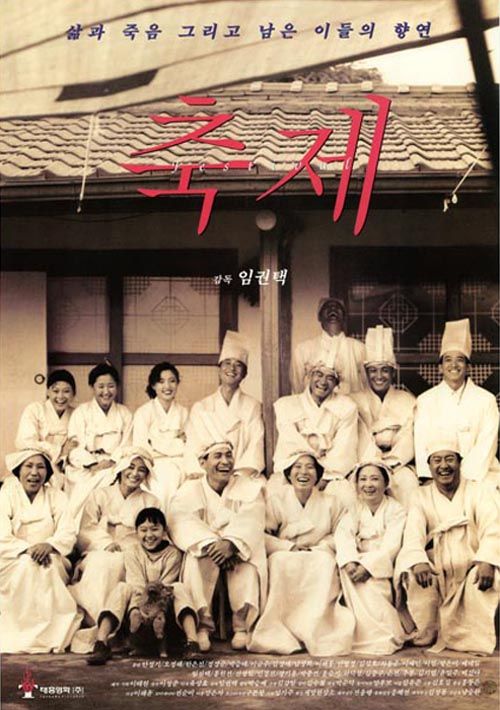
![]()
Continuing with his exploration of Korean history and culture, director Im Kwon-taek‘s ninety-fifth film, Festival, adapts the writing of Lee Chung-joon and takes a look at family relationships through the lens of the traditional Korean funeral customs. Festival incorporates a level of formalism uncommon in Im’s work that might turn off those looking for more straightforward films, but it’s the overarching portrait of a family that truly convinces in this film.
That family is the family of Lee Joon-seop (Ahn Sung-ki), a successful writer from a small town. Lee gets a call that his elderly mother (Han Eun-ji) has passed away and heads back to his hometown with his family to arrange her funeral. As the family gathers and prepares the party, they are joined by reporter Jang Hye-rim (Jeong Kyung-soon), a fan of Lee’s who is writing a story about him, as well his niece, Yong-soon (Oh Jeong-hae), who has been long estranged from the whole family, leading to some additional tension as complications arise during the extensive funeral process.
During the film, a group of older folk at the funeral lament about the changing funeral customs of Korea, which are increasingly abridged and simplified, but much of the traditional multi-day process is preserved in Festival. The adherence to the tradition gives the film a lot of space to capture the state of relationships between the large family as well as looking at some of what led to the family’s present state.
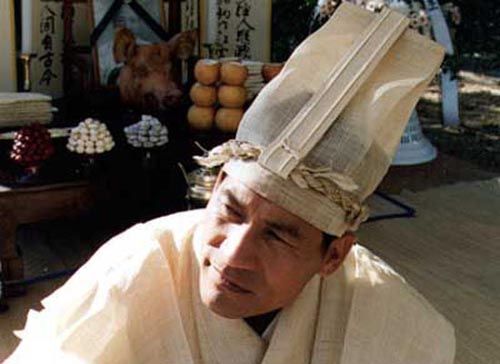
The film’s two emotional cores are Lee and Yong-soon. The former’s segments include a series of vignettes with an almost theatrical presentation and performed like a children’s television show that tells a fictional story about Lee’s mother and his daughter, which we later discover to be from Lee’s children’s book he wrote. Although it might initially seem random, it’s actually a surprisingly affecting revelation about Lee’s relationship with his mother and some of the guilt he bears from not completing his filial duty as the eldest surviving son.
In contrast, Yong-soon’s story is told in a combination of flashback, her own narration to reporter Jang and by third party and the tension she brings to the proceedings is an effective contrast to the rather expected ways of the rest of the family, also tying in well her own connection to her uncle Lee.
What’s particularly appreciable about Festival is how real the family seems, even despite how each individual character isn’t given a high deal of development. The mosaic that the film weaves together highlights the kind of interactions, both negative and positive, that can be found between real family members and the film’s decision to include both help bring a sense of reality to the film. Festival‘s final moment being a photograph of the family members taken by reporter Jang further highlights precisely what Festival is trying to do, which is take a snapshot of this family at this moment in time, tying the film together nicely at its end.
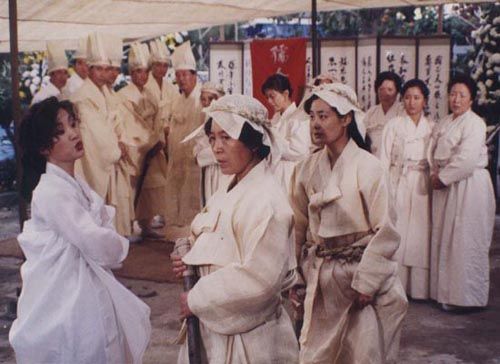
Im’s decision to include a telling of Lee’s children’s book in the film is a formal experiment that serves as a surprisingly effective boon to his emotional story and Ahn Sung-ki brings a great deal of pathos to Lee, capturing Lee both in his contrite execution of the funeral rites, but also exposing flaws in his character in a natural way. Most of the family members as well as the guests are portrayed quite admirably considering the limited amount of screen time that they get, both capturing their familial archetype while adding just enough humanity to their performances that they mostly aren’t flat.
However, not everything works perfectly in Festival. Like in The Taebaek Mountains, Im inserts some passages into the film where characters essentially submit the viewpoint of the writer in exposition, like the philosophical historical waxing of Lee’s friends in the fishing boat on the Confucian roots of Korean funeral traditions. Even if these moments do help contribute to both the setting and the understanding of the film, their incorporation into the actual narrative is clunky and seems forced, especially as they are detached from the main characters.
But even despite these clumsy patches in the film, Festival still works quite well thanks to its other naturalistic muti-faceted capturing of a family and the way that Im is able to weave this around the funeral ceremony. The insertion of Lee’s story as well as the careful attention to specific funeral customs grounds the film in both the inner emotional world of its character as well as giving sequence and space for contemplation in an effective manner, contrasting with the more naturalistic storytelling of the rest of the film.
Festival might not be on quite the same level of power as Sopyonje or hit on the same emotional beats of Im’s other successful art films, but it manages to capture a genuine portrait of a family wrapped around an examination of a cultural tradition. And that makes Festival one of Im’s most understated films, but despite its low profile and low-drama approach, Festival manages to be one of his finest. 8/10.
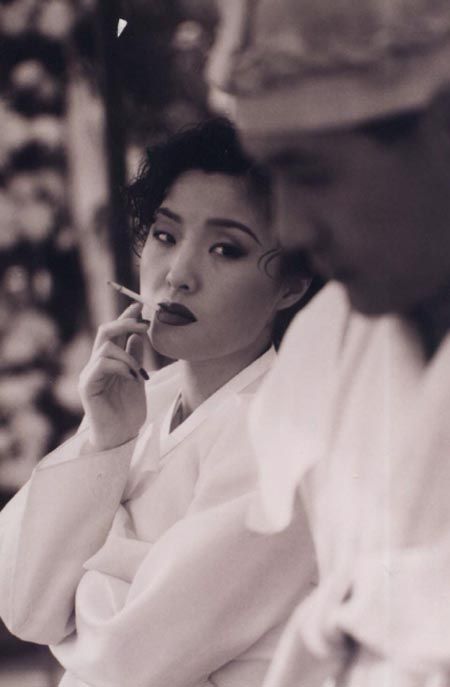
Tags: Ahn Sung-ki, featured

![[Beanie Review] Love Your Enemy](https://d263ao8qih4miy.cloudfront.net/wp-content/uploads/2024/11/LoveYourEnemy_reviewb.jpg)
![[2024 Year in Review] Editors’ Picks](https://d263ao8qih4miy.cloudfront.net/wp-content/uploads/2024/12/edpicks_2024.jpg)
![[2024 Year in Review] I owe my bean to you](https://d263ao8qih4miy.cloudfront.net/wp-content/uploads/2024/12/yir24sol_0.jpg)

![[2024 Year in Review] Bean of Hiddenness](https://d263ao8qih4miy.cloudfront.net/wp-content/uploads/2022/10/beanofhiddenness3.jpg)

![[Beanie Review] The Fiery Priest 2](https://d263ao8qih4miy.cloudfront.net/wp-content/uploads/2024/11/FieryPriest2_reviewb.jpg)

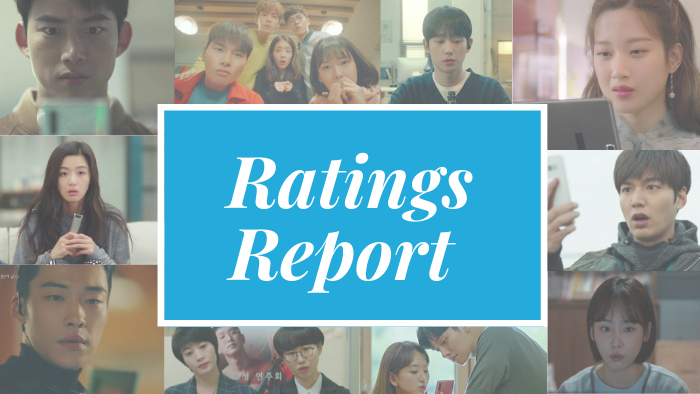
Required fields are marked *
Your email address will not be published. Required fields are marked *
1 Jadetaia
August 11, 2013 at 4:25 AM
Just wanted to take a moment to thank you for all of the very well-written film reviews. Although I don't plan to watch a good deal of these films, your reviews provide wonderful insight into the various artistic sensitivities of Korean films that I wouldn't have been aware of had I not read the reviews.
I'm glad that you choose such a wide variety of genres to review, because every different perspective expands our appreciation of Korean film, art, and culture. I enjoy reading your reviews and insights, and keep some of the film choices filed away in my head for those days when I have the time and the inclination for more serious fare.
Thanks again, and looking forward to all of your future reviews!
Required fields are marked *
2 MNS
August 11, 2013 at 4:34 AM
Because of Im's Festival, I now know we in Asia are connected. Korea traditions, case in point, dead in the family, share similar rites especially in countries where China touched.
I so thoroughly enjoyed this movie. It reminded me movies are best medium to understand oneself and her role in the community. Nostalgia for a dying impractical tradition.
Required fields are marked *
3 nokcha
August 11, 2013 at 4:36 AM
Yes, terrific reviews!
This reminded me of a Japanese film, The Funeral, the predates this one by more than 10 years. It was more of a black comedy, if I remember right.
Required fields are marked *
4 ck1Oz
August 11, 2013 at 6:30 AM
Fascinating. I've just downloaded the movie to watch it. I wouldn't even know about this if you didn't review it.
Thank you. I am not really a movie fan but it I can learn something cultural from it, will watch this.
Required fields are marked *
5 Mystisith
August 11, 2013 at 6:55 AM
Thanks for this review (and the previous ones, btw). For someone's who's interested in the Korean culture, it's nice to have something different to watch.
Required fields are marked *
6 KDaddict
August 11, 2013 at 11:51 PM
Thank you for introducing us to films that we wouldn't have known about otherwise.
They show a different side of K-ent from years back, lest we think that it's all abt flower boys and birth secrets!
No wonder Ahn Sung Ki is a national treasure of an actor. He was in almost all of these seminal works of K-cinema.
Heartfelt thanks for sharing your beloved films with us.
Required fields are marked *
7 Kiara
August 12, 2013 at 8:10 AM
refresh_daemon thank you so much for the insightful review.
Do people in Korea still practice the old funeral tradition in any form or is it completely all black now?
Required fields are marked *
refresh_daemon
August 12, 2013 at 11:01 PM
The old funeral traditions can still be seen in abbreviated forms in rural areas.
When I was much younger and my paternal grandfather passed away in a rural town in Jeollanamdo, we had a elaborate and complicated funeral and I remember being dressed in full sackcloth and having to march all the way to a gravesite in a funeral train. It was an exhausting night,.
More recently, when my paternal grandmother passed away, my father held a funeral that still maintained many of the elements of traditional funeral rites, although it wasn't quite as lengthy or complicated as my grandfather's, fifteen years prior.
The closer to the major cities you go, especially Seoul, the more likely you will see most of the traditional elements dropped. Also, many Christian households, which are a portion of the population, have largely forsaken most of the Confucian, shamanistic and Buddhist traditions that blend into traditional funeral rites.
For more on modern funeral traditions, check out this post at Ask a Korean!: http://askakorean.blogspot.com/2008/02/dear-korean-i-just-found-out-that-my.html
Required fields are marked *
Kiara
August 13, 2013 at 12:27 AM
Thank you so much :). I watched too many sageuks and have read a few books on Korea history so I was just curious. I know sageuks are not always true to the customs and traditions of ancient Korea but I'll ask anyway.
Is dressing in full sackcloth part of the Confucian or Buddhist tradition? I've seen a few Shamanistic funerals during the 3 kingdom era and they wore white robes instead of sackcloth.
Required fields are marked *
refresh_daemon
August 13, 2013 at 4:39 PM
I'm not certain of the tradition's origins. I know that white is the appropriate color to wear at funerals and, in Festival, when Yong-soon arrives dressed in a fancy white dress, appropriate to mourners, she is chided by the other family members who wore more inexpensive sackcloth. I think this suggests that sackcloth is the clothing of choice mostly because proper white hanboks are both expensive and generally only used in family funerals, therefore impractical to purchase.
In addition, the practice of dressing in white (or sackcloth) for funerals extends beyond Korea as I know the custom also used to exist for the Japanese and some Chinese traditionally as well as some cultures of the ancient Middle East, so the practice might pre-date the influence of both Confucianism, Buddhism and even organized Shamanism.
Required fields are marked *
Kiara
August 13, 2013 at 5:12 PM
Oh I see. Thank you, thank you <3